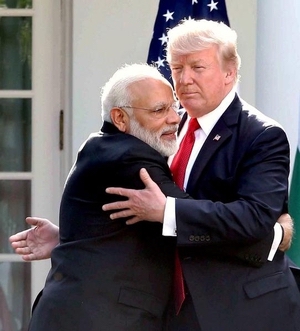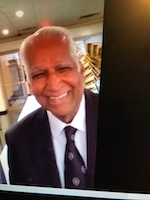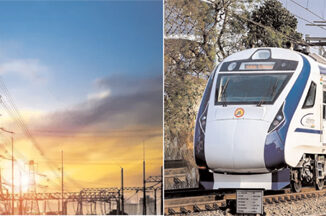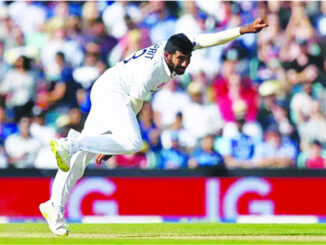
Failed foreign policy, Mounting Unemployment, Economic Woes for many Sections, and Hindutva pose a challenge to Modi

Prime Minister Modi has failed to capitalize on US-India closest ally relationship. Modi must display and reciprocate friendship to the USA thru developing systematic communications through diplomatic channels and also thru regular Press Conferences. New Delhi has failed to make international headlines because Prime Minister does not speak to the international media.
President Trump is the first President to make India its “closest ally” on a par with the U.K. By this policy decision, the U.S. has agreed to the 100% transfer of US sophisticated technology to India. The “closest ally” status also enabled India to access U.S. strategic and defense intelligence, especially on China. Any military moves by China will be closely monitored by the U.S Intelligence and shared with India. President Trump is also the first President critical of Pakistan and he has been applying pressure on Pakistan to get rid of all terrorist organizations including Lashkar-e-Taiba responsible for attacks on Mumbai, that killed 165 people. He has also allowed Lockheed Martin to manufacture in India sophisticated defense aircrafts.
Prime Minister Modi has not embraced “closest ally” status with enthusiastic support. He was more concerned with concluding defense deals with Russia and buying aircrafts from France. He also wanted to be able to import oil from Iran, sanctioned by the US. President Trump cooperated with Modi and allowed him to finalize the deal with Russia and France. He also agreed to exempt sanction so that Iran could export to India.
President Trump has visited all major countries in the world except India. Prime Minister Modi should have invited President Trump and given him an enthusiastic reception. He invited Trump for the Republic Day event knowing fully well January is the busiest month for any U.S. President. He could have used the U.S. support to negotiate with Pakistan to mete out justice to the leaders of Lashkar-e-Taiba, responsible for attacks on Mumbai. Modi failed to apply diplomatic pressure on Pakistan. He has no roadmap.
Prime Minister Modi has failed to liberalize India’s economy and create favorable environment for foreign investment. He has failed to privatize several public sector corporations, most of them are inefficient and running at a loss such as Air India and others. With 100% transfer of U.S. technology, India does not still have a blueprint of industrial and military products it intends to manufacture.
U.S. WARNS MODI AGAINST PANDERING TO HINDU NATIONALISTS
Dan Coats, Director of National Intelligence in his written testimony of the intelligent community’s assessment of worldwide threats in 2019 to the Senate Select Committee on Intelligence on January 29, said:
“Parliamentary elections in India increase the possibility of communal violence if Indian Prime Minister Modi’s BJP stresses Hindu nationalist themes. BJP policies during Modi’s first term have deepened communal tensions in some BJP governed states, and Hindu nationalist state leaders might view a Hindu-nationalist campaign as a signal to incite low level violence to animate their supporters,” he said.
Coats predicted, “increasing communal clashes could alienate Indian Muslims and allow Islamist terrorists groups in India to expand their influence,” ahead of general election. In his written statement, Coats also said it was unlikely that there would be any modus vivendi between India and Pakistan before India’s election in May and the strained relations between India and Pakistan would persist.
“We judge that cross-border terrorism, firing across the Line of Control (LoC), divisive national elections in India, and Islamabad’s perception of its position with the U.S. relative to India will contribute to strained India-Pakistan relations at least through May 2019, the deadline for the Indian election, and probably beyond,” Coats said.
Coats also said militant groups supported by Pakistan would continue to conduct terrorist attacks in both India and Afghanistan and contended that Islamabad’s “narrow approach to counterterrorism cooperation-using some groups as policy tools and confronting only the militant groups that directly threaten Pakistan—almost will frustrate US counterterrorism efforts against Taliban.
Prime Minister Modi has thus failed to capitalize on US-India closest ally relationship. Modi must display and reciprocate friendship to the USA thru developing systematic communications through diplomatic channels and also thru regular Press Conferences. New Delhi has failed to make international headlines because Prime Minister does not speak to the international media.
CORRUPTION IN INDIA
Ram, Chairman of The Hindu wrote a column that was published in The Washington Post recently. He wrote, “Corruption in India is pervasive, omnipresent and multifarious, especially in the nexus between politics and business. As India heads toward its general elections, expected to be held in April and May, the Prime Minister Narendra Modi finds himself embroiled in controversy around one of the country’s largest arms purchase contracts: a murky 7.8 billion Euro weapons deal to purchase 36 Rafale fighter planes from France.”
Modi’s arbitrary decision to reduce the number of Rafale planes purchased to 36 from 126 raised the price by 41%. Rafale planes are manufactured by Dassault Aviation. Dassault Aviation agreed to invest 50% of the 7.8 billion euro Rafale contract in India to manufacture airplane components with offset partners, chief among whom would be the Indian billionaire Anil Ambani’s Reliance Defence. The deal is expected to help generate up to 1.9 billion euros in new revenues for Ambani – the younger and much less successful brother of Mukesh Ambani, India’s richest man – who has no experience in manufacturing fighter jets.
Ram concludes: “The devastating effects of Modi’s demonetization on the working poor and small and medium businesses and widespread distress in rural India could do more damage to his electoral prospects, but a credible corruption narrative, backed even with incomplete evidence, can bring focus and emotional power to the electoral campaign. It can be a catalyst for change. The election is coming.”
(Ven Parameswaran, MBA, Columbia University Business School, was President and CEO, First Asian Securities Corporation, New York; Senior Advisor to Imagindia Institute, a think tank in New Delhi. He can be reached at vpwaren@gmail.com)





Be the first to comment